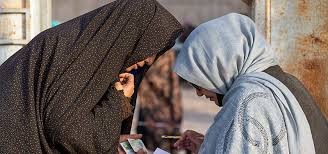- Courses
- GS Full Course 1 Year
- GS Full Course 2 Year
- GS Full Course 3 Year
- GS Full Course Till Selection
- Online Program
- GS Recorded Course
- NCERT (Recorded 500+ Hours)
- Polity Recorded Course
- Geography Recorded Course
- Economy Recorded Course
- AMAC Recorded Course
- Modern India, Post Independence & World History
- Environment Recoded Course
- Governance Recoded Course
- Science & Tech. Recoded Course
- International Relations and Internal Security Recorded Course
- Disaster Management Module Course
- Ethics Recoded Course
- Essay Recoded Course
- Current Affairs Recoded Course
- CSAT
- 5 LAYERED ARJUNA Mentorship
- Public Administration Optional
- ABOUT US
- OUR TOPPERS
- TEST SERIES
- FREE STUDY MATERIAL
- VIDEOS
- CONTACT US
Centre Proposes Job Reservation for Ladakh
Centre Proposes Job Reservation for Ladakh
05-12-2024
- On December 3, 2024, Representatives from Ladakh met with the Union Minister of State for Home Affairs, in New Delhi to discuss issues which are affecting the region.
- The meeting involved leaders from the Apex Body Leh (ABL) and the Kargil Democratic Alliance (KDA), which have been at the forefront of advocating for statehood and other rights for Ladakh.
- A key outcome of the meeting is the agreement by the Ministry of Home Affairs (MHA) to provide 95% reservation in government jobs for the people of Ladakh.
Context of Ladakh’s Demands
- Ladakh became a Union Territory (UT) in August 2019, following the abrogation of Article 370 which granted special status to Jammu and Kashmir.
- This move led to the removal of several safeguards that Ladakh enjoyed as part of the former state.
- Protests and Demands: Since then, Ladakhis have protested against the loss of constitutional protections, with particular focus on the following 4 key demands:
- Statehood for Ladakh
- Inclusion in the Sixth Schedule of the Indian Constitution, granting tribal status
- Job reservation for locals
- Creation of separate parliamentary constituencies for the Leh and Kargil regions.
Key Features of the 6th Schedule
Composition of ADCs
Jurisdiction and Powers of ADCs
|
The High-Powered Committee (HPC) Meeting
- The HPC met on December 3, 2024, with representatives from both the Leh Apex Body (LAB) and Kargil Democratic Alliance (KDA).
- The meeting was chaired by the Minister of State for Home Affairs.
- Key agreements made in the meeting include:
- 95% Government Job Reservation: The Centre has agreed to provide 95% reservation for Ladakhi locals in government jobs, which is seen as a crucial step towards addressing the high unemployment rate in the region.
- A one-third reservation for women in the Leh and Kargil Hill Development Councils (LAHDCs) was also proposed to address the gender gap in local decision-making and governance.
- The Centre agreed to declare Urdu and Bhoti as the official languages of Ladakh, recognizing the region’s cultural diversity.
- The MHA proposed working on a draft to ensure constitutional safeguards for land and cultural preservation in Ladakh.
- A review of 22 pending laws will be undertaken, especially those impacting local governance, empowerment, and wildlife conservation.
Local Leaders' Reactions
- Thupstan Chhewang (Chairman of the Leh Apex Body):
- Chhewang, a former BJP Member of Parliament, confirmed that Ladakh’s demand for a separate Public Service Commission (PSC) is not constitutionally feasible due to the lack of a legislative assembly in Ladakh.
- He emphasized that recruitments for gazetted posts (such as doctors and engineers) will be handled through the Jammu and Kashmir Public Service Commission (JKPSC), not through the Delhi Andaman and Nicobar Islands Civil Service (DANICS).
- Chhewang also highlighted the unemployment crisis in Ladakh, stating that since the region became a Union Territory, no gazetted recruitment has taken place, leaving the youth without opportunities.
- Recruitment is expected to begin immediately, and contractual employment has been the norm so far.
- Kunzes Dolma (Women Representative, KDA):
- Dolma, the only woman representative in the HPC, pointed out that women in Ladakh have long been excluded from decision-making roles.
- She called the meeting a major development for women’s rights, highlighting the lack of elected women representatives in local councils and grassroots political structures.
- She said that gender-based reservation in local governance will help in empowering Ladakhi women, who have struggled to gain a foothold in decision-making positions.
- Sajjad Kargili (KDA Leader):
- Kargili described the meeting as highly productive, with the government agreeing to discuss the four-point agenda that the KDA and LAB had proposed. These points include:
- 95% job reservation for Ladakhis in local government jobs
- One-third reservation for women in hill councils
- The official recognition of Urdu and Bhoti as Ladakh’s languages
- The possibility of also including Purgi, Shina, and Balti as official languages of Ladakh
- Kargili described the meeting as highly productive, with the government agreeing to discuss the four-point agenda that the KDA and LAB had proposed. These points include:
Challenges and Continuing Issues
- Despite progress on jobs and gender representation, the demand for statehood remains unresolved.
- This issue is central to the aspirations of Ladakhis, who seek a legislature and greater autonomy.
- 6th Schedule: The demand for 6th Schedule status to grant tribal protections to Ladakh is another critical point of discussion.
- This will be further deliberated upon in the upcoming meetings.
- Bureaucratic Challenges: Dolma raised concerns over the lack of local bureaucrats in Ladakh, which hampers the effective implementation of development projects.
- She emphasized the need for locally trained bureaucrats who can understand the region’s specific needs and challenges.
Breakdown and Resumption of Talks
- The HPC talks had previously been held in March 2024, with Ladakhi leaders remaining firm on their demands for statehood and tribal status.
- In October 2024, climate activist Sonam Wangchuk went on an indefinite fast in Delhi, drawing attention to the region’s demands.
- This fast led to the resumption of talks between the government and Ladakhi civil society leaders, resulting in the recent meeting’s progress.
Conclusion
The government’s proposal for 95% job reservation and other measures is seen as a positive step toward addressing Ladakh’s pressing issues, including unemployment, gender inequality, and cultural preservation. However, the region's leaders remain committed to securing statehood and Sixth Schedule status, which will require further negotiations. The January 15, 2024 meeting of the High Powered Committee will be crucial in determining the future of Ladakh’s political autonomy and development.




